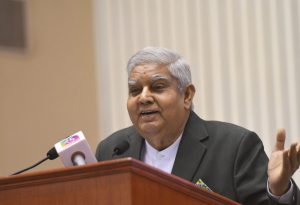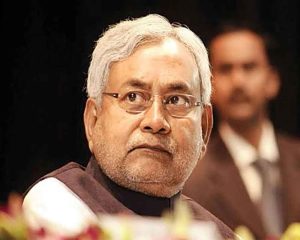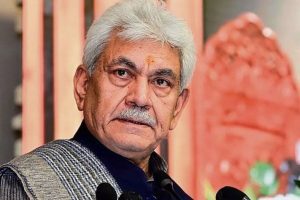New Delhi – The Jagdeep Dhankar Resignation has created a significant constitutional vacancy in India’s second-highest office, triggering widespread political speculation about potential successors. The Jagdeep Dhankar Resignation, announced on Monday, July 21, 2025, was submitted directly to President Murmu with immediate effect, citing serious medical reasons for stepping down from the prestigious position.
The Dhankar’s Resignation has left the nation’s political establishment scrambling to identify suitable candidates for the vacant Vice Presidential position. According to constitutional provisions, the election for the next Vice President must be conducted as soon as possible following the Jagdeep Dhankar Resignation, ensuring minimal disruption to the functioning of India’s democratic institutions.
Political analysts and constitutional experts emphasize that the Jagdeep Dhankar Resignation creates an urgent need for the Election Commission to announce the electoral process for selecting his successor. The timing of the resignation has added complexity to the political landscape, with various parties beginning to position their preferred candidates.
Constitutional Requirements and Electoral Process

Following the Jagdeep Dhankar Resignation, the Constitution mandates that elections for the Vice Presidential position must be held at the earliest possible opportunity. The Jagdeep Dhankar Resignation has activated constitutional provisions that require a swift electoral process to fill the vacancy in this crucial constitutional office.
The electoral process triggered by the Jagdeep Dhankar Resignation will involve members of both houses of Parliament, including Rajya Sabha and Lok Sabha representatives. The Election Commission has yet to officially announce the dates for the Vice Presidential election following the Jagdeep Dhankar Resignation, but preparations are expected to begin immediately.
Legal experts note that the Jagdeep Dhankar Resignation sets a precedent for health-related resignations from high constitutional offices. The resignation process was completed efficiently, with all constitutional requirements fulfilled promptly after the decision was communicated to the President.
Leading Contenders for Vice Presidential Position
Several prominent political figures have emerged as potential successors following the Jagdeep Dhankar Resignation. The speculation surrounding these candidates reflects the strategic importance of the Vice Presidential position in India’s political hierarchy.
Nitish Kumar: The Veteran Administrator


At 74 years old, Nitish Kumar represents one of the most experienced political leaders being considered after the Jagdeep Dhankar Resignation. Despite initially seeming unlikely, Kumar’s candidacy has gained traction among political observers who view the Vice Presidency as a natural progression for the longest-serving Chief Minister of Bihar.
The Bihar Chief Minister’s potential elevation following the Jagdeep Dhankar Resignation has been supported by various NDA allies, including Upendra Kushwaha, who have suggested that Kumar should make way for the next generation in state politics. This transition could provide Kumar with an honorable exit from state politics while maintaining his influence at the national level.
Union Minister Chirag Paswan’s announcement about contesting the Bihar elections has further fueled speculation about Kumar’s potential move to the Vice Presidency. Political strategists suggest that the timing of these developments, coinciding with the Jagdeep Dhankar Resignation, may not be coincidental.
VK Saxena: The Administrative Reformer
Delhi Lieutenant Governor VK Saxena, aged 67, has emerged as another strong contender following the Jagdeep Dhankar Resignation. Despite serving only three years in his current position, there has been consistent speculation about Saxena’s readiness for a more significant national role.
Saxena’s tenure as Delhi LG has been marked by significant administrative conflicts with the AAP government, particularly regarding appointments and policies related to the Delhi Jal Board. His confrontational approach with Chief Minister Arvind Kejriwal has been viewed as a defining characteristic of his administrative style.
The former corporate executive’s background and his role in Delhi politics have positioned him as a candidate capable of bringing private sector experience to the Vice Presidency. His supporters argue that his administrative acumen would be valuable in the constitutional role.
Manoj Sinha: The Strategic Administrator


Jammu and Kashmir Lieutenant Governor Manoj Sinha, at 66 years old, presents another compelling option following the Jagdeep Dhankar Resignation. His tenure as J&K LG is scheduled to conclude on August 6, creating perfect timing for a transition to the Vice Presidency.
Sinha’s experience as a former junior railway minister and his long association with the BJP from Uttar Pradesh have established his credentials within the party hierarchy. His supporters credit him with maintaining stability in Jammu and Kashmir following the abrogation of Article 370.
However, Sinha’s candidacy faces challenges due to the recent Pahalgam terror attack, which resulted in 25 tourist casualties and a pony operator’s death. Critics suggest that this security incident may impact his prospects for higher office.
Political Implications and Future Prospects
The Jagdeep Dhankar Resignation has created opportunities for significant political realignment within the ruling coalition. The selection process for his successor will likely reflect broader strategic considerations about regional representation, administrative experience, and political loyalty.
Each potential candidate brings unique strengths and challenges to the Vice Presidential role, making the selection process particularly complex for the ruling establishment.

